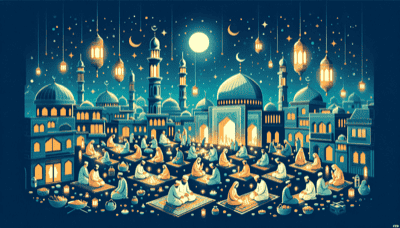We're here to help you keep count of the days to or since a date. Just click the button below and enter your chosen date to get started. Also choose the suggested days or search for a special day above #countingthedays

Shab e-Barat, also known as the Night of Absolution or Mid-Sha'ban, is a significant Islamic holiday observed on the 15th night of the month of Sha'ban, the eighth month of the Islamic lunar calendar. This night holds great reverence among many Muslims, particularly in South Asia, including Pakistan.
The history of Shab e-Barat is rooted in Islamic tradition and Hadiths (sayings of Prophet Muhammad), which mention that during this night, God determines the destiny of individuals for the coming year. It is believed that God forgives sinners, grants mercy, and decides on matters of life, death, and sustenance.
In Pakistan, Shab e-Barat is marked by various religious and cultural practices:
Prayers: Muslims engage in special prayers like Salat-ul-Tasbih and Nafl (voluntary prayers) throughout the night, seeking forgiveness and blessings for themselves and their deceased ancestors.
Recitation: The recitation of the Holy Quran is another common practice where individuals may complete reading the entire Quran or specific surahs believed to have particular virtues.
Charity: Giving to charity and helping those in need are encouraged actions on Shab e-Barat as acts of goodwill.
Sweets Distribution: Families prepare and distribute sweets and festive food among relatives, neighbors, and the poor.
Visiting Graves: Many people visit cemeteries to pay respects to departed family members by offering Fatiha (prayers for the deceased) and seeking mercy for their souls.
While Shab e-Barat is primarily a religious observance, it also features cultural aspects such as:
Lighting up homes with candles or electric lights as a symbol of celebration.
Fireworks displays are sometimes conducted by youth despite being discouraged by religious authorities due to safety concerns.
In conclusion, Shab e-Barat in Pakistan embodies a mix of devotional acts aimed at seeking divine forgiveness alongside cultural traditions that foster community bonding.